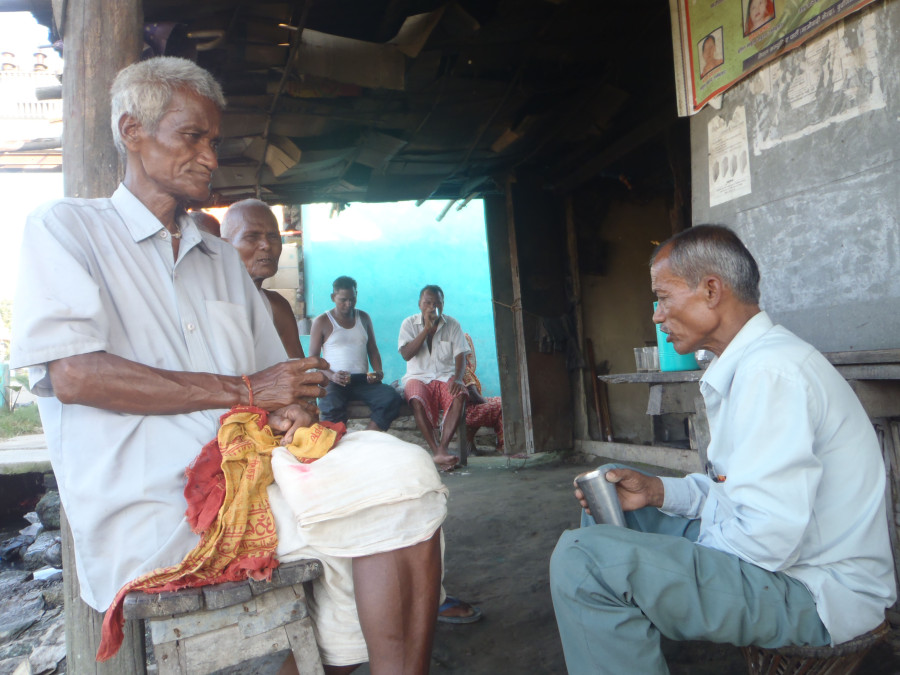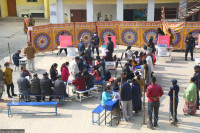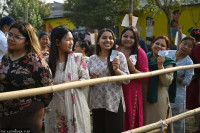National
Left front sends ripples to the ground
The decision of three political parties to form a leftist alliance ahead of the upcoming federal and provincial elections has sent ripples to the grassroots level.
Jitendra Sah
The decision of three political parties to form a leftist alliance ahead of the upcoming federal and provincial elections has sent ripples to the grassroots level.
After numerous democratic movements in the country, national politics has come to an interesting juncture, says Tilakram Majhi, a 54-year-old farmer of Budhi-ganga Rural Municipality in Morang district.
“It’s good that parties have finally understood that unity is better than fragmentation,” said Majhi. “Now, the parties should be careful about selecting good candidates in the elections.”
The recent developments in view of the elections scheduled for November 26 and December 7 have grabbed the attention of villagers who are busy preparing for the Tihar and Chhath festivals.
However, some people in rural areas suspect that the alliance could be a new political drama staged to “deceive the people”.
Conversation on political issues has become common at tea shops and other public places.
“Call it unity, alliance or group, if it benefits the public it will be welcomed,” said Nanulal Sardar of Sukchuk in Budhiganga-5. A wage earner, Sardar said that it is futile to speculate what is going on in the minds of our politicians. “It will be unfortunate if this alliance is just for personal benefit of a few leaders,” he said.
Bachcharam Chaudhary of Budhiganga-3, who runs a teashop, is worried over corruption and favouritism in Nepali politics. “What kind of democracy is ours where a poor cannot afford to contest election?” he wondered, citing example of neighbouring India where Narendra Modi, believed to be a tea seller, ultimately became the prime minister.
Some locals take the announcement of the leftist alliance with caution. “After all they are the same leaders. How can we expect them to maintain harmony with others when they could not manage factionalism in their own party?” local entrepreneur Ramesh Chaudhary asked.
Ramesh sees the unity of the three parties simply as their tactical move. If the parties fail to garner an expected poll outcome, he remarked, leaders will start pointing fingers at each other.
However, the political turn means nothing to some. “However big our leaders talk, we can’t make our ends meet without toiling hard,” said Paro Rishidev, a labourer.
Thirty-year-old Rekha Harijan said leaders only worry about how to remain in power by employing various techniques. “What can we expect from them [leaders] who haven’t been able to resolve the citizenship issue?” she said, referring to the controversy over the citizenship provision of the new constitution.
Sociologist Mukesh Singh says that it is normal for villagers to talk enthusiastically about politics as the people want stability in the country.
“Whoever takes the reins of the country, the government should not change every six months,” he said.
“Political stability is a must for social development. The country will plunge into a grave crisis if the alliance is just a ploy to cover the wrongdoings of leaders.”




 26.22°C Kathmandu
26.22°C Kathmandu















